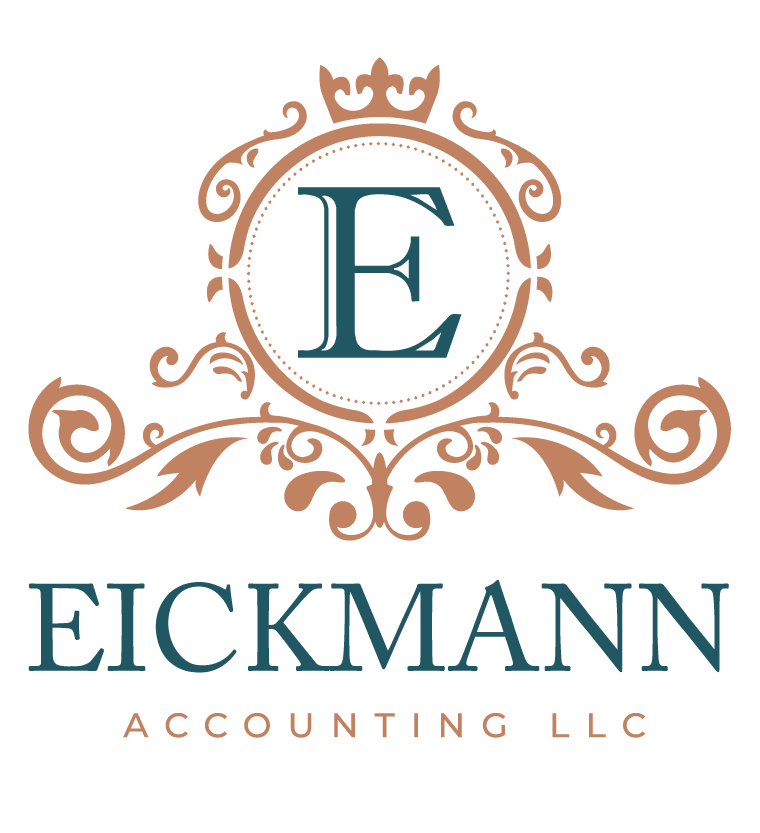Beyond April 15th: 5 Year-Round Strategies to Master Your Personal Taxes
For many, the word “taxes” instantly conjures images of last-minute scrambles and the looming April 15th deadline. But what if we told you that mastering your personal taxes isn’t just about filing on time, but about smart, year-round planning? By adopting a proactive approach, you can reduce stress, uncover potential savings, and gain greater control over your financial future.
At Eickmann Accounting LLC, we believe that savvy tax management is an ongoing process, not an annual sprint. Here are five essential strategies to help you stay ahead of the game and optimize your personal tax situation throughout the year.
- Optimize Your Withholding or Estimated Payments
Are you consistently receiving a large tax refund each year? While a refund might feel like a bonus, it essentially means you’ve given the government an interest-free loan throughout the year. Conversely, owing a large sum can be a major headache, potentially leading to penalties.
The Strategy: For employees, regularly review and adjust your W-4 form with your employer to ensure your withholding accurately matches your tax liability. If you’re self-employed, a gig worker, or have significant investment income, making accurate quarterly estimated tax payments is crucial.
The Benefit: By aligning your payments more closely with what you actually owe, you keep more of your money throughout the year, ready for your own investments or expenses. It also helps you avoid underpayment penalties from the IRS.
Actionable Tip: Use the IRS Tax Withholding Estimator (or consult with your tax professional) whenever you experience a major life change like marriage, divorce, having a child, or changing jobs. For estimated tax payers, revisit your income projections quarterly.
- Track Deductible Expenses Diligently
Many individuals miss out on valuable deductions simply because they don’t keep meticulous records. From student loan interest to charitable contributions, eligible expenses can significantly reduce your taxable income.
The Strategy: Develop a consistent habit of tracking all your expenditures. This includes documenting cash payments, saving digital and physical receipts, and categorizing expenses as they occur.
The Benefit: Every legitimate deduction lowers your adjusted gross income (AGI), which can decrease your overall tax bill. For remote workers, understanding potential home office deductions (if applicable to your situation) can also make a difference.
Actionable Tip: Embrace digital solutions! Use expense tracking apps, take photos of receipts immediately, and maintain dedicated folders (digital or physical) for different categories of expenses. Consistency is key.
- Maximize Retirement Contributions
Contributing to retirement accounts is a dual-purpose strategy: it secures your financial future and often provides immediate tax benefits.
The Strategy: Actively contribute to tax-advantaged retirement accounts such as a 401(k) through your employer, or an Individual Retirement Account (IRA) – either Traditional or Roth. If eligible, Health Savings Accounts (HSAs) also offer incredible tax advantages.
The Benefit: Contributions to Traditional 401(k)s and IRAs are typically tax-deductible in the year you make them, lowering your current taxable income. HSAs offer a triple tax advantage: tax-deductible contributions, tax-free growth, and tax-free withdrawals for qualified medical expenses.\
Actionable Tip: Review the annual contribution limits and aim to maximize them if possible. Set up automatic contributions from your paycheck or bank account to make saving effortless.
- Understand and Plan for Capital Gains and Losses
If you’re an investor, the buying and selling of assets like stocks, bonds, or real estate can have significant tax implications.
The Strategy: Don’t just make investment decisions in a vacuum. Understand the difference between short-term and long-term capital gains, and how capital losses can be used to offset gains (and even a portion of ordinary income).
The Benefit: Strategic planning around your investment portfolio can help you minimize the tax burden on your earnings. For example, “tax-loss harvesting” (selling investments at a loss to offset gains) is a common strategy.
Actionable Tip: Before making major investment moves, especially towards the end of the year, consult with a financial advisor and your tax professional to understand the potential tax consequences and optimize your portfolio.
- Review Life Changes and Their Tax Impact
Life is dynamic, and major milestones can dramatically alter your tax situation. Marriage, divorce, the birth or adoption of a child, purchasing a home, or starting a new job all have significant tax implications.
The Strategy: Don’t wait until April 15th to report these changes. Understand how each event can affect your deductions, credits, and overall tax liability.
The Benefit: By understanding the tax impact of life changes as they happen, you can proactively adjust your financial planning, update your withholdings, and ensure you’re claiming all eligible benefits (like the Child Tax Credit or mortgage interest deductions).
Actionable Tip: Whenever a significant life event occurs, make a note to discuss it with your tax professional. They can provide timely advice and help you adjust your strategy accordingly.
Navigating personal taxes doesn’t have to be a source of annual anxiety. By implementing these five year-round strategies, you can transform your approach from reactive to proactive, leading to greater financial clarity and potential savings. Need personalized guidance for your unique tax situation? Contact Eickmann Accounting LLC today for a consultation. We’re here to help you master your taxes, not just file them.





Hi, this is a comment.
To get started with moderating, editing, and deleting comments, please visit the Comments screen in the dashboard.
Commenter avatars come from Gravatar.